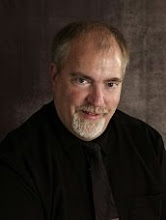Peace and freedom
Over the weekend I finished reading two books. The first was entitled While Europe Slept: How Radical Islam is Destroying the West from Within, by Bruce Bawer. Bawer is gay, so his perspective is shaded by the difference between the liberal social policies of Western European nations toward gay marriage and the position of Islamic shariah law. He has lived in the Netherlands and Norway and observed life in most of Europe. What he sees is a capitulation to the demands of radical Muslims in the name of multiculturalism and “peace.”
Here are a couple of interesting passages:
It’s not surprising that we’ve ended up drawing two vastly different morals from World War II. For Americans, the moral was that tyranny was evil and must always be resisted; for Europeans, the moral was that war itself was evil and must be avoided at all costs. (p. 99)
War is evil, but when a tyrannical enemy wages war against you, brutally killing the innocent, is it morally responsible to say, "Oh, well, whatever?" Read on...
From Lisbon to Helsinki, from Dublin to Rome, “peace” is the mantra, and nowhere is this more surely the case than in Germany. Today’s Germans reflexively oppose war—war in Iraq, war anywhere, war against anybody for any reason whatever. For Germans today, the very idea of armed combat is tied up inextricably with Hitler, Nazism, the Holocaust, and a profound, implacable sense of national guilt. All these things are part of one nightmarish continuum—one evil, ugly bundle. Germans realize, too, that for the world around them, the very idea of war is bound up with images of Germans in uniform. For a German today, the simple act of putting on military dress recalls immense historical infamies and imposes a feeling of culpability to heavy to shoulder. One can well understand why a German might feel that his country’s only hope for redemption, given its history, lies in peace, peace, and more peace—at whatever cost—and in proclaiming at every turn the German people’s repudiation of their forebears’ crimes. (p. 132)
For the sake of argument, let’s speculate as to what life would be like if a pattern of capitulation and appeasement were to continue. You might have what Boston Globe columnist Jeff Jacoby recently described in his column Life in an Isalmist US. Here’s an excerpt:
``Prayers for the Assassin," Robert Ferrigno's latest thriller, is set 35 years in the future, when the United States has been transformed into the Islamic Republic of America. It is a country in which university professors can lose their jobs for being ``insufficiently Islamic," cellphone cameras are illegal, and men can only dream of ``loud music, cold beer, and coed beaches." There is still a Super Bowl, but the cheerleaders are all men. Mt. Rushmore still exists, but the presidential faces on it have been blown up.
Read the rest for an idea of what life for women might be like.
Or, as Bawer fears, you may have a complete inability of liberal leaders to take a stand against the encroachment on their freedom, resulting in the ascendancy of neo-Nazis and other militant right-wing groups. Incidentally, America’s conservatives have no parallel in any European democracy. Bush and the Republicans are so far to the right of any European that they invariably sound the “Hitler” alarm when discussing America’s president.
The other book I read is called Painting the Map Red: The Fight to Create A Permanent Republican Majority by Hugh Hewitt. In this analysis, Hewitt offers several recommendations, not the least of which is to highlight the difference between the Democrat view of “peace” with the Republican view of “victory.” Nobody likes war and no one relishes casualties—unless, of course, you feel that you can exploit them for political gain. Then let’s just keep the body counter ticking so that everyone can see that “War, what is it good for? Absolutely nothin’!” and “Support our troops! Bring them home!” and the rest of the hippie, European-style “peace” slogans.
In the book of Jeremiah, the prophet delivered this message from the Lord: “I am against the prophets who wag their own tongues and say ‘The LORD declares.’ Peace, peace, they say, when there is no peace.” The Hebrew word for peace is “Shalom,” and when used in a Biblical concept, it reminds us of the spiritual peace that we have in knowing that our sins are fully and freely forgiven for Jesus’ sake. We have been reconciled to God. God no longer hates us because of our sin, but loves us in Christ.
How different is the claim that Islam is a religion of peace, when it was spread at the point of a sword. Islam means not “peace,” but “submission,” and you can live in peace if you agree to submit to the will of Allah. Girls, this means agreeing to be abused and dominated by the male members of your family, your husband, and that if you go outside without your veil, your family will accuse you of being a whore and that you are asking to be raped. This is peace? Anyone can have peace if you agree to surrender to a conqueror’s brutal terms. But at what point do you say “enough?”
In your reading for this week, you come to see another word that carries subtle semantic shading and nuance as well. That’s the word “Freedom.” Just as “peace” may be used by different people in different ways, so also did the Renaissance humanists have a different idea of what “freedom” entailed from that of the Reformation biblicists. Use the comments section to provide your biblical definition of “Freedom.”



